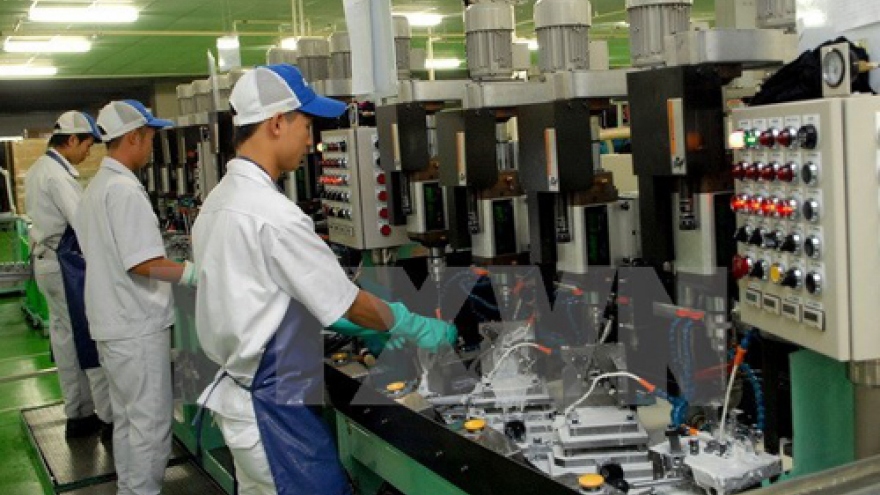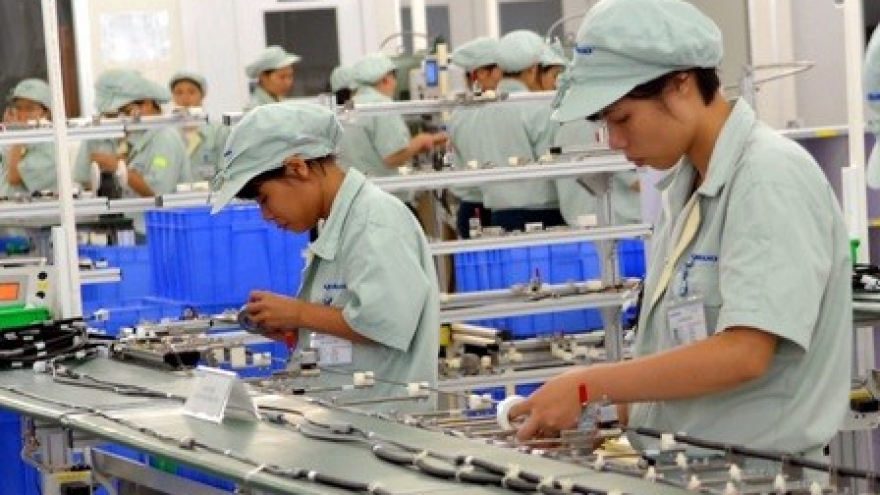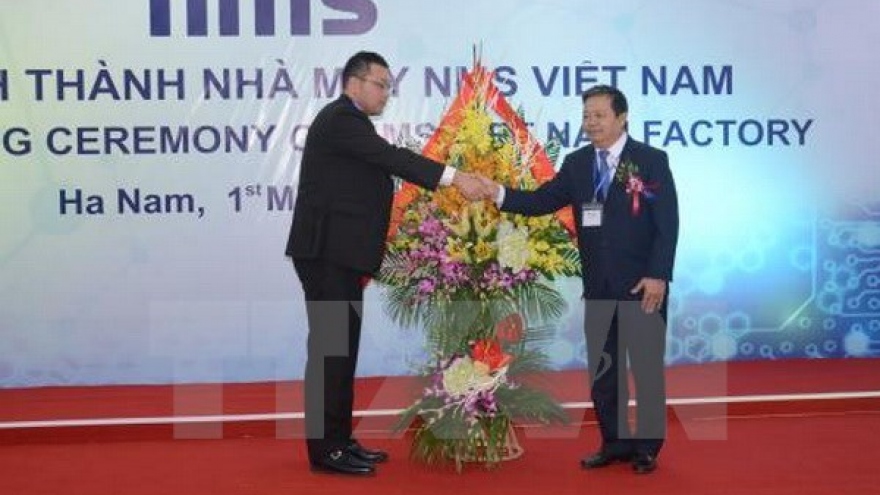Ha Nam develops smart agriculture
VOV.VN - A model encouraging farmers to contribute land to help businesses expand production has proven a success in attracting investment in smart agriculture. Ha Nam, an agricultural province in the northern delta, has taken the lead in this field.
 |
The establishment of qualified farm produce and fruit production zones has gradually changed the traditional farming habits and increased income for farmers.
When farmers contribute their land for production, they are paid US$45 per 360 square meters annually. Ha Nam plans to exempt from training fees for farmers who want to work for businesses receiving their land.
Le Van Son, a farmer in Nhan Binh commune, Ly Nhan district, said “At first we didn’t believe in the success of the policy. Now we have seen the effectiveness of the program and growing income thanks to the involvement of businesses. We have land but lack modern technologies to turn out high-value products.”
Ha Nam’s high-tech agriculture zone combines the farm land of 300 households under a 20-year land lease.
Investors hope that it will become the largest melon growing area in the north and will meet domestic demand as well as the requirements of demanding export markets like Japan, the EU, and the US.
Tran Kim Lien, Chairwoman and CEO of the National Seeds Company (Vinaseed), said “In 2017, we will build 21 hectares of greenhouses using advanced cultivation technologies to improve efficiency. The most important thing is that the technology must be spread so that farmers can join the chain. The company will then become a training and technology transfer center. In May we will have the first crop of qualified melons.”
High-tech is the key to food security, farm produce quality, and agriculture restructuring. Ha Nam has made businesses the “nucleus” and driving force of a large-scale commodity agriculture model.
Trieu Quoc Dat, Director of the provincial Department of Agriculture and Rural Development, said Ha Nam has adopted a policy that supports businesses with infrastructure, electricity, and transportation in high-tech agriculture zones. It will continue to ask enterprises to invest in building factories that use closed processing technologies.
“We advise the provincial People’s Committee to combine farm land into large-scale fields to attract enterprise investment. In large-scale fields, mechanization and modern technologies can be applied to grow qualified produce that will change the face of the province,” said Dat.
During a recent visit to Ha Nam’s high-tech agriculture zone, Prime Minister Nguyen Xuan Phuc praised the model which has resulted in an initial success in investment attraction and called for model’s expansion. Mr. Phuc reiterated the government’s intention to develop an organic, safe, and smart agriculture.



